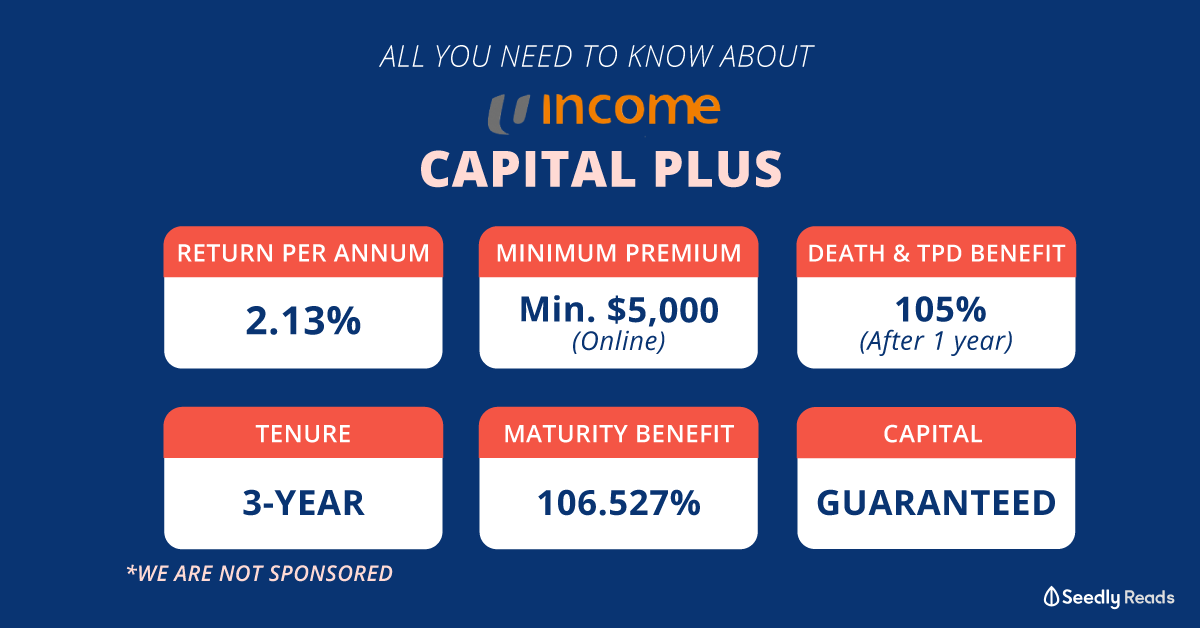Advertisement
Anonymous
Should I opt for manulife lifeready plus or NTUC star assure at 25 years PPT?
Hello.
I am looking at both Manulife lifeready plan and NTUC star assure with early CI rider.
Manulife Pros:
1. Cheaper premium ($1.7k vs $2.1k from NTUC)
2. Financial flexibility option from age 70
3. Retrenchment benefit
NTUC Pros:
1. Higher surrender value at age 85 based on 4.75% ($147k vs $112k manulife)
2. Major impact benefit - claim 50% of CI rider
3. Advanced restoration benefit
4. Better illustrated yield and lower expense ratio as well - does this really matter?
For advice thks
3
Discussion (3)
Learn how to style your text
Elijah Lee
08 Jul 2020
Senior Financial Services Manager at Phillip Securities (Jurong East)
Reply
Save
Write your thoughts
Related Articles
Related Posts
Related Products

Manulife Life Insurance
5.0
4 Reviews

NTUC Income Life Insurance
4.8
4 Reviews

FWD Term Life Plus Insurance
4.8
10 Reviews
Related Posts
Advertisement







Hi anon,
I'm assuming both plans have the same basic sum assured, premium term and multiplier. But for early CI, NTUC is unable to have the whole plan pay out, whereas Manulife can. I'm not sure if you are running a 50% early CI and 50% late CI permutation, but I'll try to answer your queries based on what you mentioned.
On your points about Manulife, here are my thoughts/views:
Yes, generally lower premiums than NTUC. However, have you also taken a look at Aviva and China Taiping?
Retrenchment benefit, while nice, should not be a major feature to make or break your decision. If you have set up your emergency funds properly, funding premiums for a year or two while you are out of a job is the least of your worries as you will be more worried about finding a job to put food on the table.
On your points about NTUC, here are my thoughts/views:
NTUC does have slightly higher surrender value in general, but this is non-guaranteed, and a life plan isn't meant to be surrendered under normal circumstances. It's a good thing, though.
Major impact benefit is helpful, definitely. Same for the advanced restoration benefit
If bonuses are not cut, then a lower expense ratio on the par fund and the insurer willing to credit more to policy holders (resulting in a better yield) can only be a good thing overall.
You might have more questions, so feel free to reply to this post.